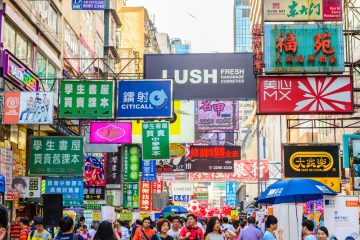What a controversial pastry says about China’s economy
MOONCAKES are among the most divisive treats. For some the chewy pastries are delicacies on which to gorge for the Mid-Autumn Festival, a Chinese holiday that falls this year on September 24th. For others they are dry, dense and full of calories. But for economists they are something else entirely: an indicator of important trends in consumption, innovation, corruption and grey-market trading.
Mooncakes play this role because of their status as gifts. Ahead of the mid-autumn holiday, companies give them to employees; business contacts exchange them. Consumption of mooncakes is thus less a reflection of whether people enjoy the pastries, likened by some to edible hockey pucks, and more a measure of the health of the economy. So it is heartening to know that, amid rising trade tensions with America, the Chinese bakery association has forecast that sales of mooncakes will rise by a solid 5-10% this year.
Some observers fret that Chinese consumers, burdened by rising debt, have started opting for cheaper goods. But consumers still plump for more expensive varieties of mooncakes rather than the classic nut-and-egg-yolk fillings. Shangri-La, a five-star hotel chain, has won fans with its blueberry-cheese mooncake (dismissed by traditionalists as cheesecake). Judging by long queues at Häagen-Dazs stores, mooncake-shaped ice-cream sandwiches are also booming. At least 30 listed food companies, more than ever before, are vying for a bite of the $ 2bn mooncake market this year.
Mooncakes have long given off a whiff of corruption. Businesses seeking favours from officials send lavishly wrapped boxes of them. When Xi Jinping, China’s powerful president, intensified his anti-graft campaign in 2013, the mooncake market shrank by more than 20%. A rebound over the past three years has naturally fuelled talk of a rebound in bribery, too. The government has denied this. Yet it is clearly worried. The front page of the newspaper published by the Communist Party’s anti-graft agency warned on September 17th that although mooncakes are small, they can point to much bigger problems.
Perhaps the tastiest morsel from mooncakes is what they reveal about China’s grey economy. Scalpers hawking mooncake gift coupons have taken to Shanghai’s streets in recent days, as they do every year, standing outside busy subway stations and popular bakeries. Most economic studies describe scalping as a phenomenon that arises when scarce tickets to sporting events or concerts are resold at a hefty markup. Yet there is no shortage of mooncakes in China. The problem is inefficient allocation: too many coupons are given to people who do not like them. China’s economy has plenty of inefficiencies, whether in the form of state-owned companies or gift-giving customs. But it sometimes also has solutions.
This article appeared in the Finance and economics section of the print edition under the headline “Reading the crumbs”





